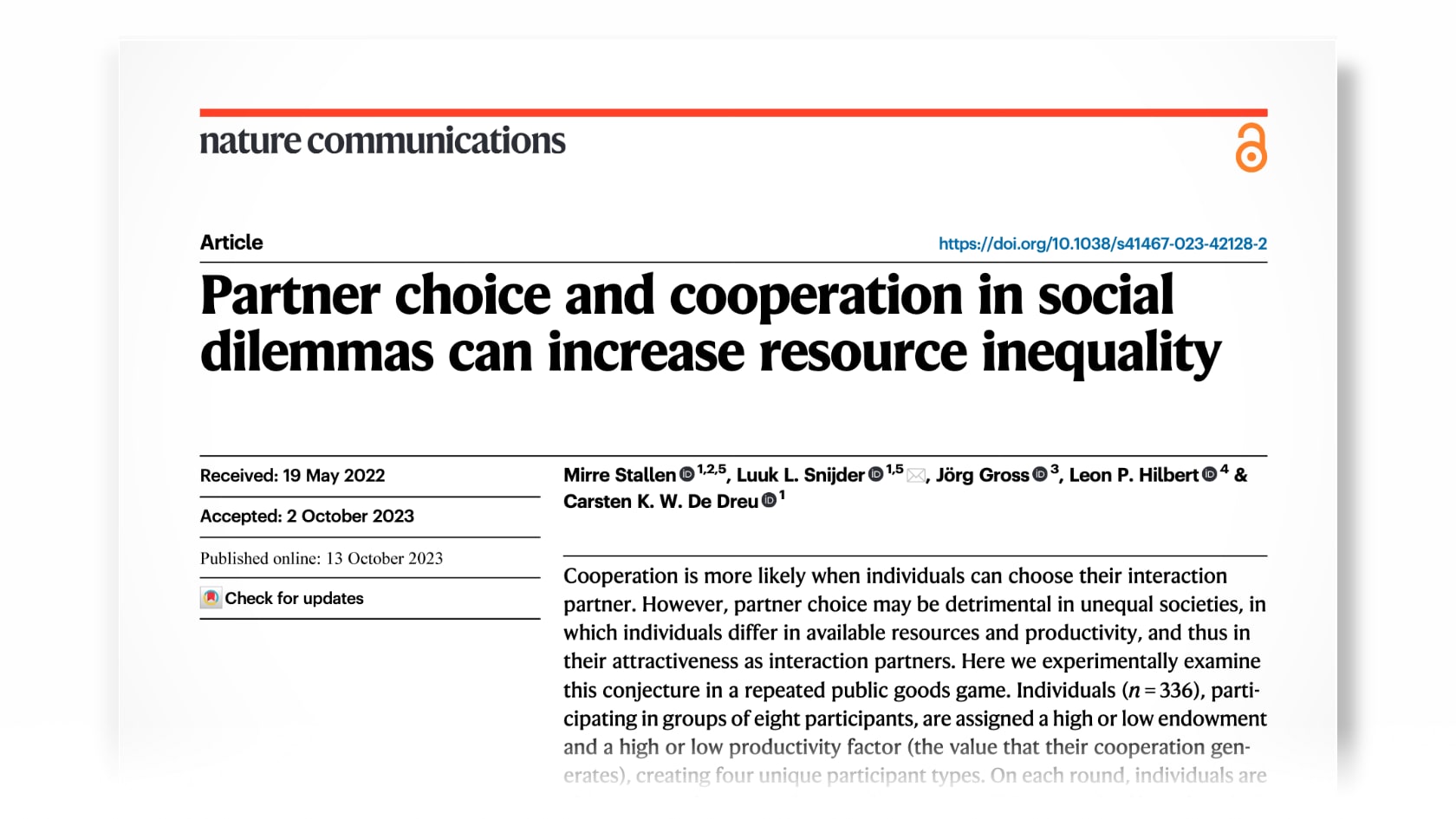New publication: "Partner choice and cooperation in social dilemmas can increase resource inequality"
New paper published in Nature Communications.

Abstract: Cooperation is more likely when individuals can choose their interaction partner. However, partner choice may be detrimental in unequal societies, in which individuals differ in available resources and productivity, and thus in their attractiveness as interaction partners. Here we experimentally examine this conjecture in a repeated public goods game. Individuals (n = 336), participating in groups of eight participants, are assigned a high or low endowment and a high or low productivity factor (the value that their cooperation generates), creating four unique participant types. On each round, individuals are either assigned a partner (assigned partner condition) or paired based on their self-indicated preference for a partner type (partner choice condition). Results show that under partner choice, individuals who were assigned a high endowment and high productivity almost exclusively interact with each other, forcing other individuals into less valuable pairs. Consequently, pre-existing resource differences between individuals increase. These findings show how partner choice in social dilemmas can amplify resource inequality.
Reference: Stallen, M., Snijder, L.L., Gross, J., Hilbert, L.P., De Dreu, C.K.W. (2023). Partner choice and cooperation in social dilemmas can increase resource inequality. Nature Communications, 14, 6432.